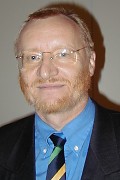Term 2003-2006
|
Highlights |
Commission Chair |
|
Commission 1 looks back to a very successful period 2002 –
2006. Many presentations at all FIG events were made. Lots of
discussions took place and mutual understanding between
colleagues from different regions and cultures have been
strengthened. Not all our wishes of an ambitious work plan have
become reality but there is always another term.
|
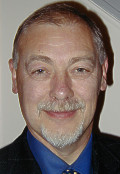 |
Mr.
Klaus Rürup |
Thanks to the very active vice chairs commission 1 achieved
a lot as you can see below. But there remains one problem: How to
get more surveyors active in commission work? Sometimes it looks
like depending on the place of venue whether it is attractive or
not, whether expected discussions in that region are worth going
there or not.
All members of commission 1 took benefit out of the fact widening
their own horizon, seeing different cultures and learning how surveyors
in different regions solve their problems in different ways. All members
of commission 1 should receive a big thank you for their commitment to
FIG and to the work in commission 1.
Commission 1 is dedicated to all fields of professional activities and
therefore has a commitment to raising issues of general interest that apply
across the activities of all commissions. There are many areas of overlap of
interest and this supports cooperative involvement in other commissions
activities. The title 'professional practice' is a clear indication of the wide
breadth of aspects to be handled.
Terms of reference
- Professional practice, legal aspects and organisational structures
- Standards and certification
- Project-management, quality and best practice
- Information technology management as it relates to professional practice
- Support of under-represented groups and fair competition
Mission statement
- Capability of development: Changes are affecting the operation of
surveying practices, their management and their professional structures under
the challenges of widening professional activities.
- Change of technology: Managing processes and infrastructure with ever
changing business infrastructures in the areas of IT, internet, networks and
total quality management.
- Improving surveyors' reputation: Supporting the essential dialogue between
politicians and surveyors with regard to further development and setting up
the own business in strengthening surveyors' role in economy and politics.
- Under represented groups: To focus public attention on under represented
groups by surveying activities taking place to improve representation.
The Objectives for the Work Plan are to undertake the terms of reference in
order to:
- Involve the wider community in the work of commission 1 recognising it's
role in getting the basic professional building blocks in place for
practitioners;
- Develop collaborative work practices between professionals;
- Build networks with member associations, related societies and
organizations to improve professional practice and standards;
- Foster intercommissional cooperation;
- Recruit active and enthusiastic people to work with Commission 1 in
progressing its mission.
Working Group 1.1 - FIG Standards Network
Policy issue
- Developing the involvement of practising surveyors in the development and
use of standards
- Increasing the influence of surveyors on key international standardisation
bodies
- Building the linkage between FIG workplans and standardisation activities
- Advising FIG officers and members on standards and standardisation
- Supporting the implementation of FIG's policy on standards
Specific projects
- Continuing to research the most effective way to influence the
standardisation process, building relationships with member associations and
sister societies as necessary
- Coordinating FIG's input to and relationship with ISO (in particular TC211
and TC172 SC6) and IVSC
- Working with Commissions to provide appropriate briefings to FIG's members
on developing and recently published standards
- Maintaining and updating a standards area on the FIG website and the FIG
Guide on Standardisation
Achievements
The last four years have seen very significant consolidation and
maturing of FIG’s work in a number of standards-related areas as
summarised in this report. The Network has played a key role in raising
the profile of standards in FIG, and the profile of FIG in
standardisation activity. The imminent submission of FIG work on the
core cadastral domain model to ISO for progressing to an international
standard marks a further development. The Network intends to continue
the process of developing a clear shared understanding of FIG’s
priorities and required actions in the area of standardisation, and will
continue to shape this as a common agenda with the Commissions.
Chair
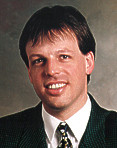 |
Iain Greenway
Ireland
igreenway[at]compuserve.com
|
Working Group 1.2 - Professional practice and organisational
structures
Policy issue
- Widening professional activities, overcome restrictions
- European and world-wide limitations, monitoring the legal development
(i.e. GATS, EC Treaty, other relevant policies)
- Dialogue between politicians and surveyors, as well as public private
partnership.
Specific projects
- Fundamentals of legal frameworks to be presented in a paper. (2002)
- Professional studies, business structures, bans or restrictions to be
investigated. Facts to be collected for development of a paper. (2003)
- Recommendations on behalf of less developed countries, acknowledgement by
developed countries, how structural and legal processes might be possible.
Models to be proposed. (2004)
- Acknowledgement of the requirements of governments /survey departments -
necessary information provided as a basis for surveyors to deal with the legal
developments and future requirements. (2005)
- Review Publication 29 on Business Practices and determine whether there is
a need to update it. (2005)
- Synthesis of the research undertaken (Munich 2006)
Achievements
In the period 2002 – 2006 papers have been regularly presented. The
main aspect was put on the development policies and the role of FIG as
an expert NGO.
The legal framework of all issues concerning land management can be
examined but no influence on the legislation is possible for an expert
member of FIG - the politics of the countries is too far away to be
reached by FIG.
As a general conclusion it has to be stated, that also in the
surveying business, the “revenue oriented business” is the most
important goal. This is not surprising in developed countries – but in
less developed countries this attitude leads to uncontrolled and
uncoordinated activities – as could be seen in many countries.
The role of FIG should nevertheless be to impose itself as a leader
and expert NGO in Land Management issues. To achieve this, a further FIG
Commission has to be established just to follow this goal and to
coordinate independently the work in lesser developed countries.
Experiences: Due to difficult collaboration and experiences made by
other working groups all work and finding have been done by one person
in the working group.
Chair
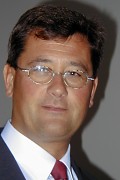 |
Michael Keller
Switzerland
Mkeller[at]ipg.ch
|
Working Group 1.3 - Information technology management as it
relates to professional practice and communications
Policy issue
- Identifying the impact of IT, Internet and e-commerce on the profession
and determining strategies for dealing with the impact.
- Communicating effectively to the FIG community including using the
Homepage of Commission 1
- Development of Knowledge Management concepts as a way of working more
effectively.
Specific projects
- Produce a communication and marketing plan for Commission 1 activities to
support its work and ensure that key messages are being received by member
organizations and that two way communication channels are operating. This to
be prepared in 2002
- Impact of IT, Internet and e-commerce impact on the profession to be
reported with recommended strategies for dealing with the impact.
- Ongoing development and refinement of the Commission 1 Homepage to be
undertaken by Co-Chair.
- Review of Knowledge Management concepts and how they could be used in
practice
Achievements
The most important event was that we were able as commission 1 to
open wide the gate to new cultures and regional groups to present their
different views to the profession with variable levels of ethics and
standards.
Looking to these varieties I started a project financed by USAID and
AMEDEAST “Surveyors and development, new vision for codes of ethics and
standards”. This project, that I will develop to try to make it an
international reference from Commission 1, included about 24
presentations all around Lebanon then many presentations in Jordan,
Egypt, Morocco, Algeria and Tunisia. Also I have organized the second
international Conference in Beirut on September 2004 with the
participation of 12 Arab delegations and about 6 other European from
France, Germany, Czech Republic, Cyprus, Cameroon and Italy.
In this conference I have launched the first initiative to the new
Commission 1 Work Plan with my presentation “Role of Surveyor, a Human
Vision beyond the Technique”.
Commission 1 was also present and active in the regional conference
in Ghana where vice chairs Dietmar Sperling, Leonie Newnham, Iain
Greenway and Stephen Djaba were participating to that event as well as
the chair-elect Yaacoub Saade representing the Chair Klaus Rürup and
Commission 1 presented a summary about the next work plan and organized
a workshop that introduced this commission to new members and African
organizations that welcomed the new visions of Commission 1 and
supported the issues that we are defending.
During that event we had a meeting of the new Francophone Federation
(FGF, Fédération des Géomèters Francophones) and we were able to
convince this young federation to cooperate with FIG and Commission 1 in
the development of its issues regarding the liberal practice of the
profession. Waiting for the term of office 2006-2010 to launch the new
work plan of our commission we will try to make from FIG and Commission
especially a professional reference for the humanism of the profession
to conserve the real and glorious character of the role of a surveyor.
Chair
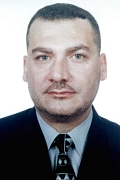 |
Chair:
Yaacoub Saade
Lebanon
comandoo1[at]yahoo.com
|
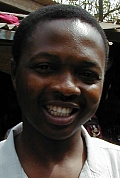 |
Co-Chair:
Stephen Djaba
Ghana
Stephen[at]ghana.com |
Working Group 1.4 - International project management (Joint
Activity with Commission 10)
Policy issue
- Ability of professionals to work as effectively as possible in
multifaceted projects as such projects are an important component of
professional service delivery.
- Working with people, communicating messages, moving towards more
collaborative work processes as the world of the professional and the type of
work undertaken expands into other related areas.
- Being aware of current good practice, how it can be implemented across a
variety of delivery systems and communicating this to professionals.
- Knowing what quality management is and being provided with resources to
assist in applying this in diverse work situations.
Specific projects
- Development of a project management resource detailing the major facets of
project management delivery as it applies to the profession in conjunction
with Commission 10 and using an interactive review process with FIG Member
Associations.
- Research case studies in project management across regions of the world in
conjunction with Commission 10 with the aim of preparing a resource for use by
members in learning about and discussing project management issues.
- Establish a collaborative work site to develop a community of interest
group that can work across member organisations to share information on
current good practice and quality management in theory and practice. Outcomes
of this to contribute to FIG's approach to world's good practice.
Achievements
The International Project Management Working Group has been
concentrating on exploring the management of change and innovation
through project management. To this end a number of papers were produced
over the four years involving those involved in industry change and
development using case studies to identify key issues that might be
relevant for professionals as they participate in the continually
evolving land management environment.
The model of the land management paradigm (Enemark, 2004) has been
used as an organising vehicle to explore changes in policy frameworks,
land information infrastructure and land administration functions. This
has encouraged debate and discussion around these areas across
Commissions and has involved Commissions 1, 2, 7 and 10 throughout the
four year term and other organisations such as the Australian Spatial
Sciences Institute.
The working group has created a core group of those interested in
innovation and change across the world and my thanks go to them for
their valuable contribution through this period.
At the congress in Munich in October 2006 a joint paper for
Commission 1 and 10 will review cross country comparisons exploring
change management issues in large land management projects titled ‘Changing
the World We See Through Land and Building Project Management’. This
will clarify the importance of land management professionals in
implementing major changes and the importance of their roles as change
agents. Another paper will publish a guide for professionals in managing
change issues consolidating things learned from the last 4 years.
Chair
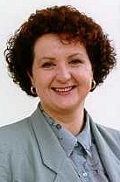 |
Leonie Newnham
Australia
Leonie.Newnham[at]nre.vic.gov.au
|
Working Group 1.5 - Under-represented Groups in Surveying
(Joint working group with other FIG Technical Commissions)
Policy issue
- Survey the role of minorities in the world of surveying and the benefit of
diversity.
- Analyse the present status of under-represented groups and be aware of
good practices concerning the support of under-represented groups in FIG
member associations, in professions and at universities.
- Enhance fair competition for minority groups.
Specific Projects
- Continuing with a FIG network for under-represented groups in surveying to
enhance the distribution of information.
- Intensify the work within the FIG Commissions to support women and
cultural and language minorities.
- Evaluation of FIG Washington Congress registration concerning gender, age,
commissions and continents.
- Organise joint Commission working group meetings or workshops during the
working weeks.
Acievements
Beneath the quarterly Newsletter (www.fig.net/organisation/tf/underrep/index.asp)
the main task of the Joint Commission Working Group 1.5 on
Under-represented Groups in Surveying during the last year was the
preparation of Guidelines to Enhance the Representation of
Under-Represented Groups in FIG. They are a result of consultations and
the efforts of a number of experts and contributors, led by the Chair of
the Working Group. The Guidelines contain FIG Gender Policies, FIG Young
Surveyors' Policies and FIG Minorities Policies as well as Case Studies
and Good Practices.
The Working Group 1.5 and the Task Force before have undertaken
several initiatives, such as the quarterly newsletter promoting the
participation and perspectives of women, youth and minorities,
demonstrating its increasing commitment to diversity in representation
and plurality in perspective. However, it can learn from case studies
from surveying organisations around the world which provide good
practices in this respect. In this section, examples of best practice
from professional associations, public institutions and universities
from a number of countries across the globe are showcased. It is not
intended to be a representative sample, but rather a collection of
experiences from countries in which FIG representation has been easy to
obtain.
The Draft Guidelines are adopted by the Council of FIG and will be
presented during the FIG Congress 2006 in Munich.
Chair
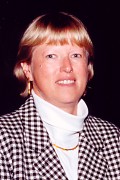 |
Gabriele Dasse
Germany
g.dasse[at]gmx.de
|
|































